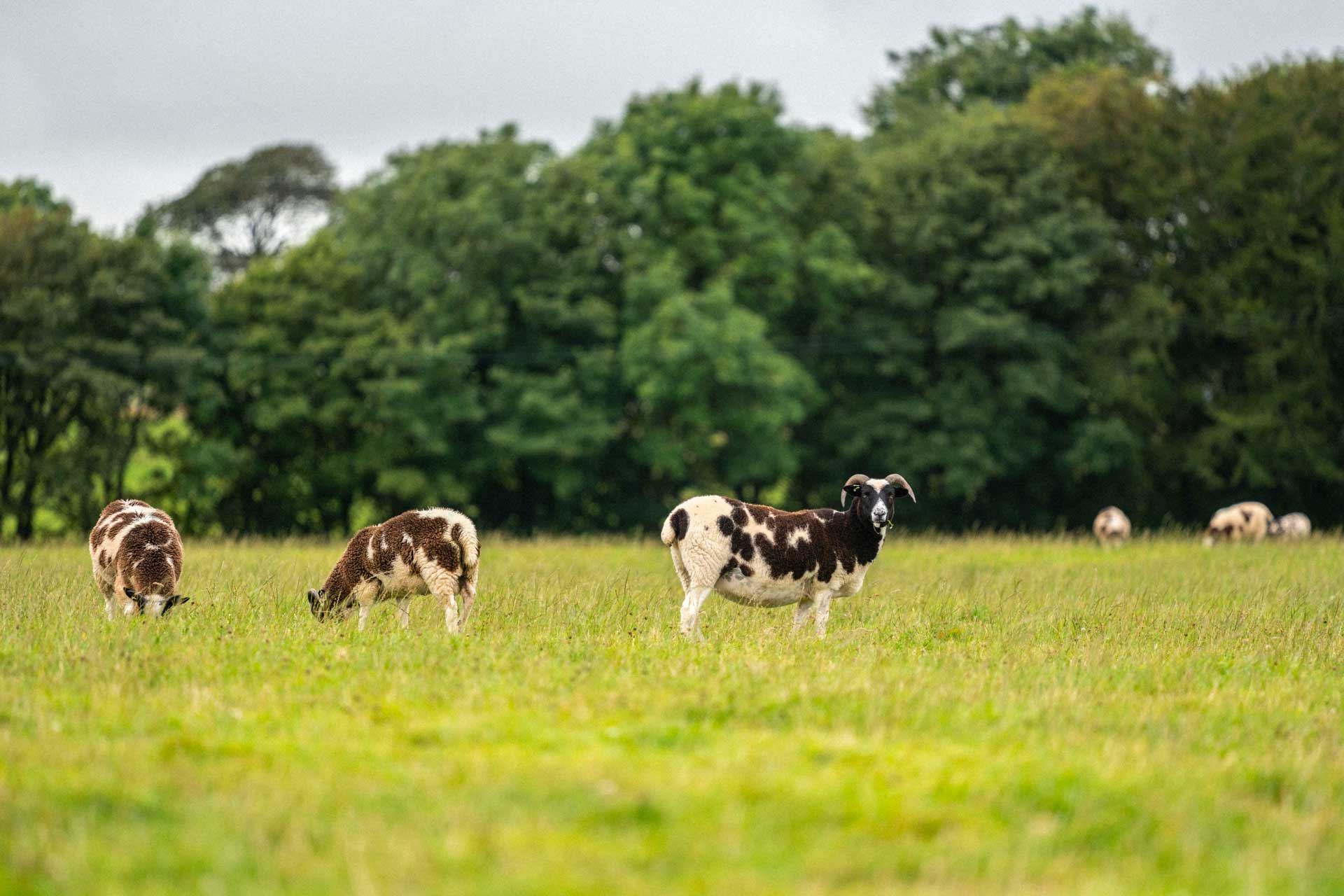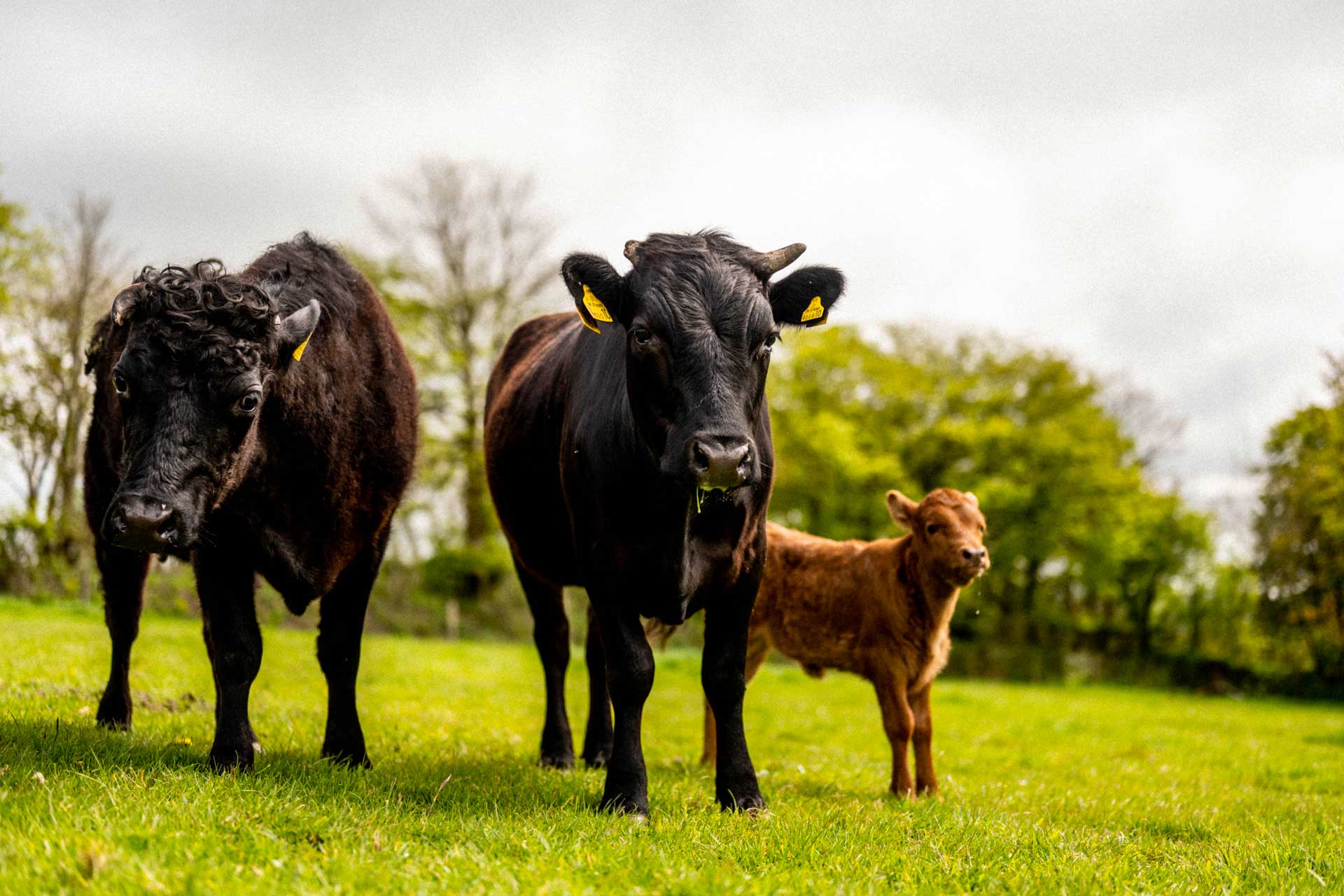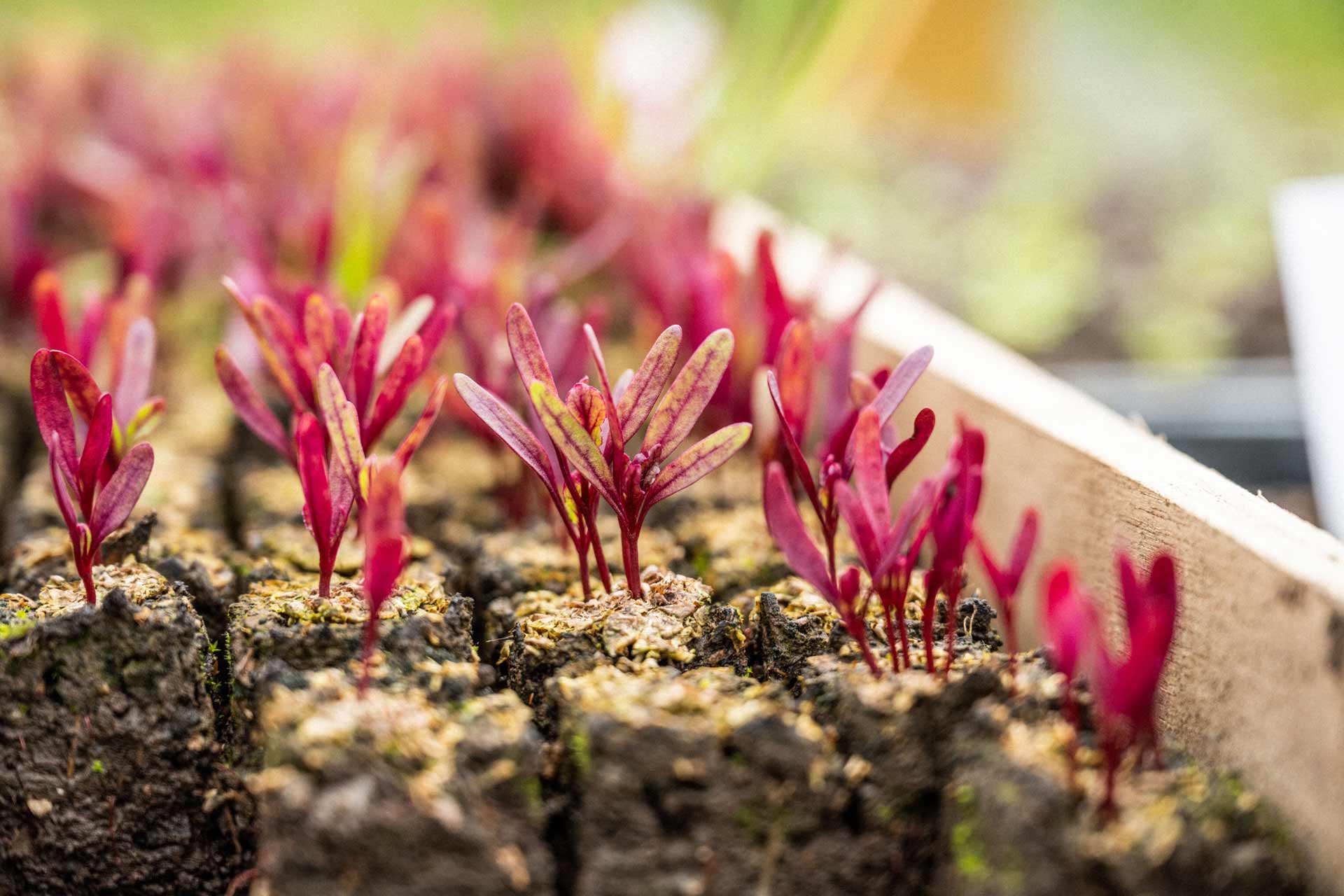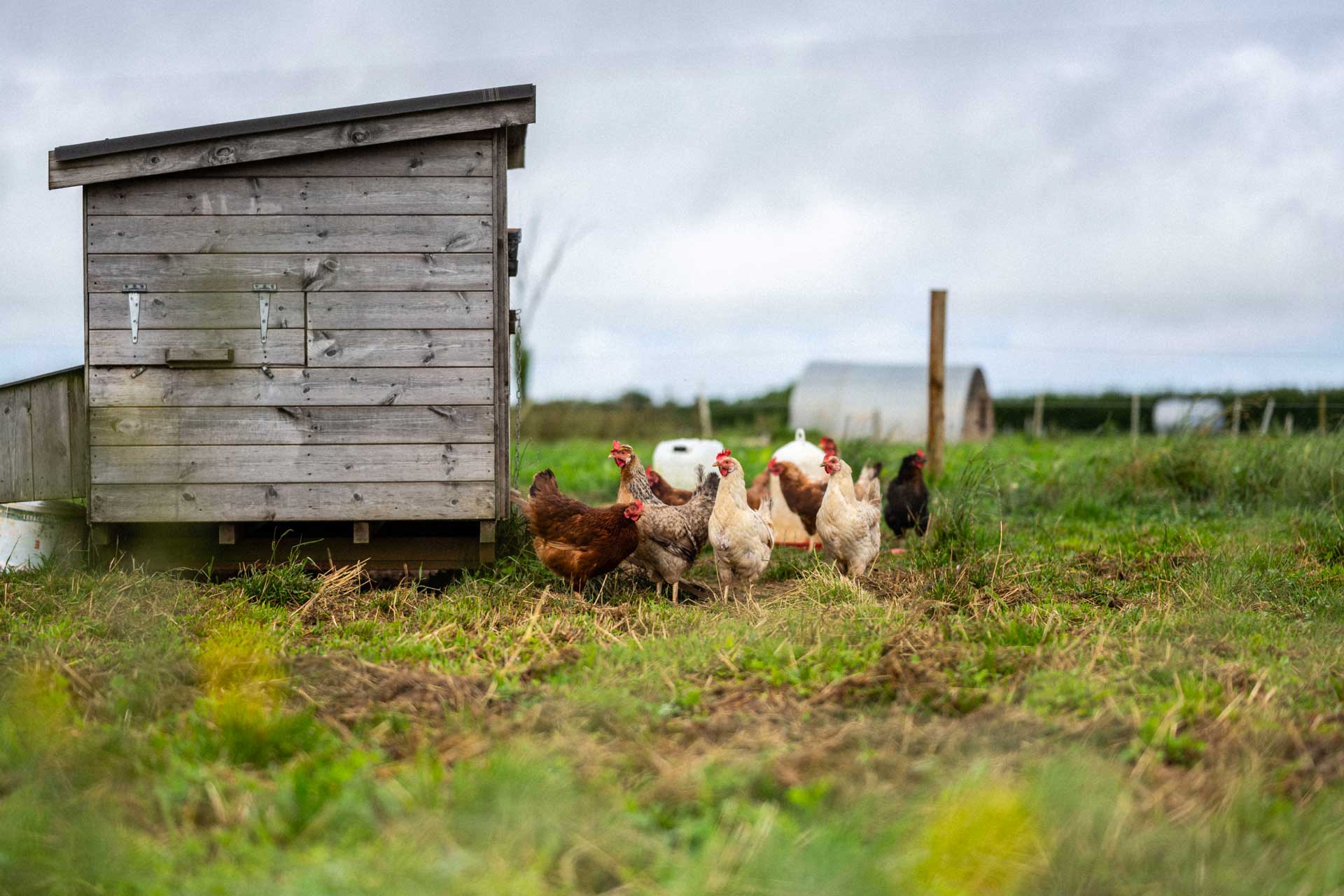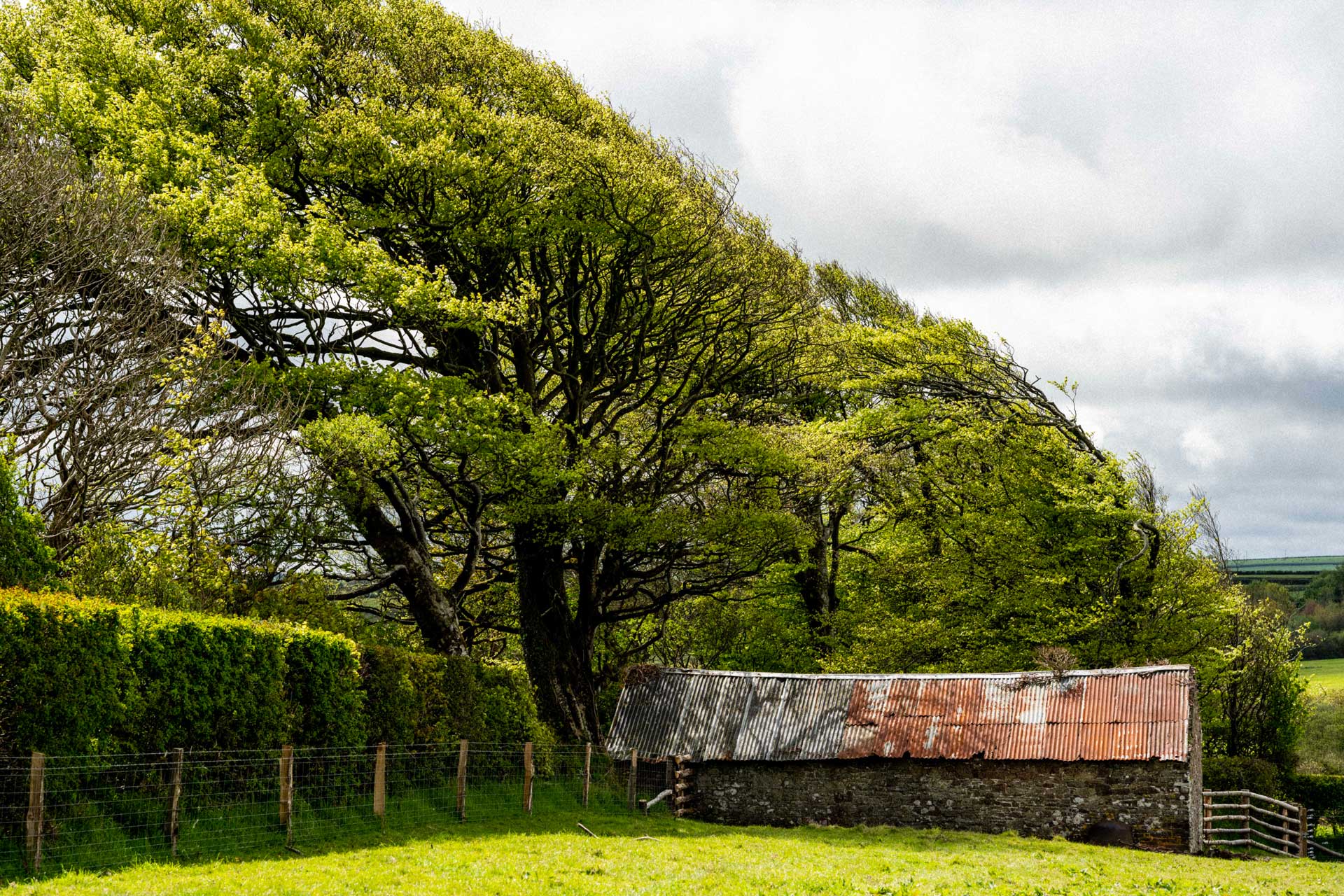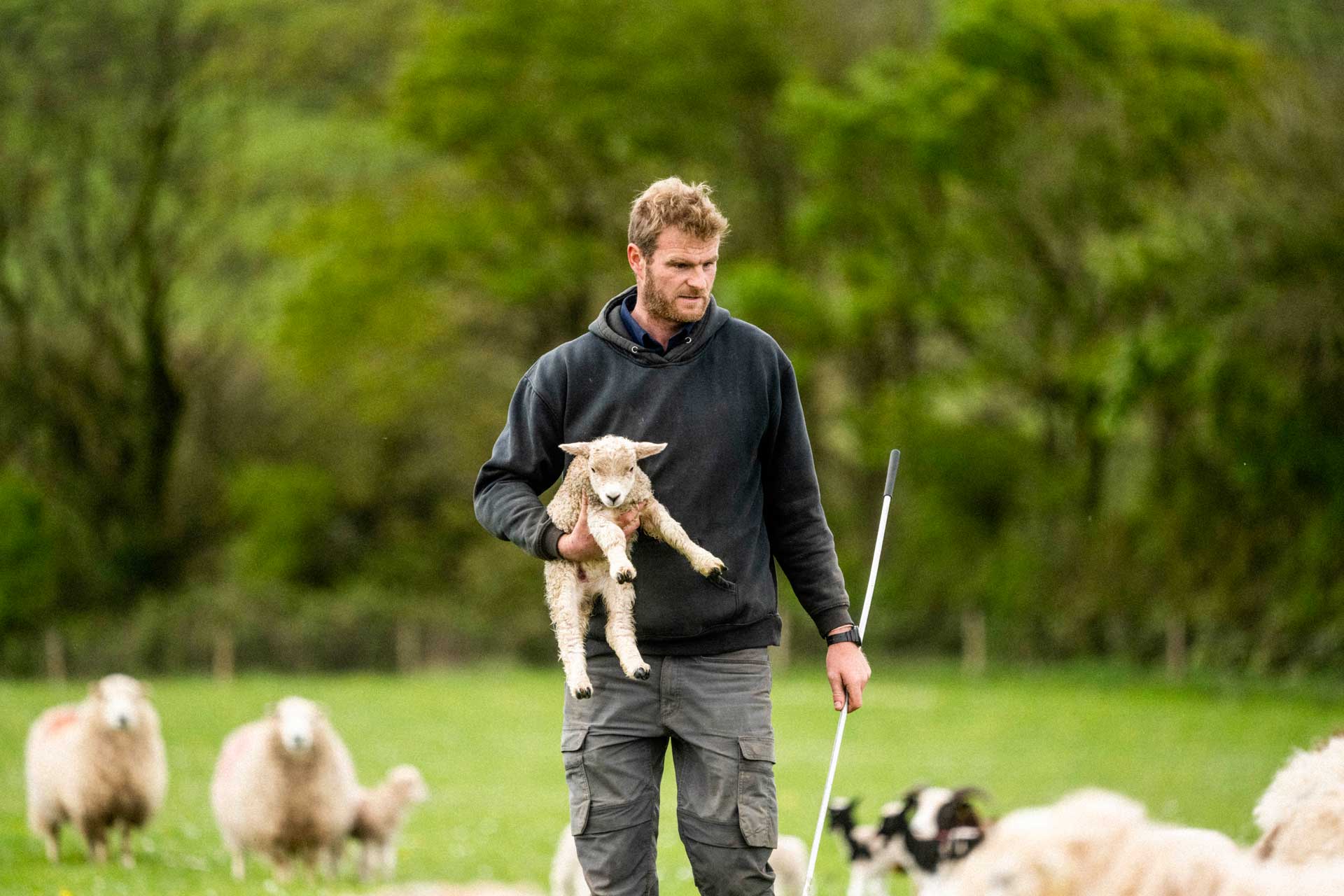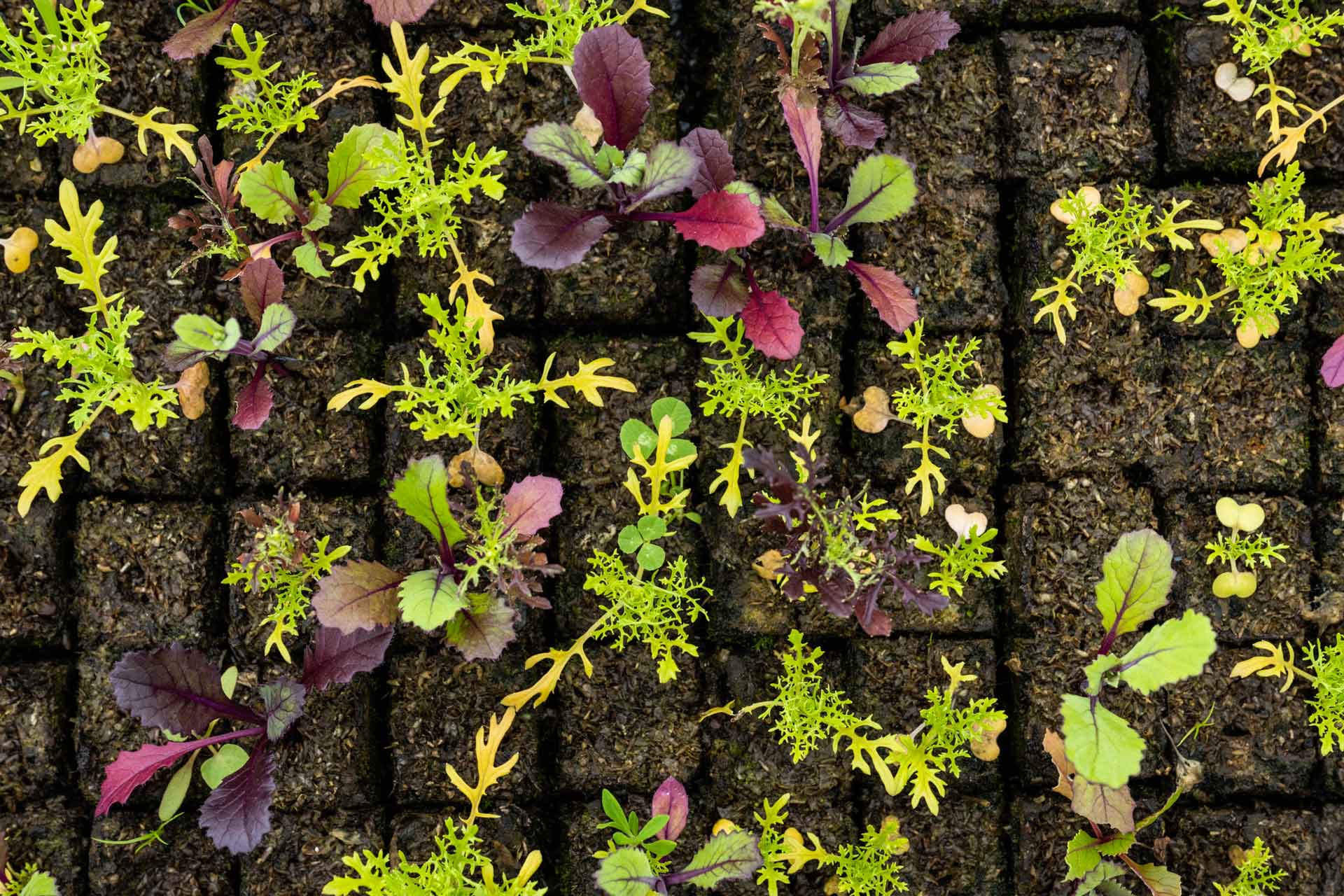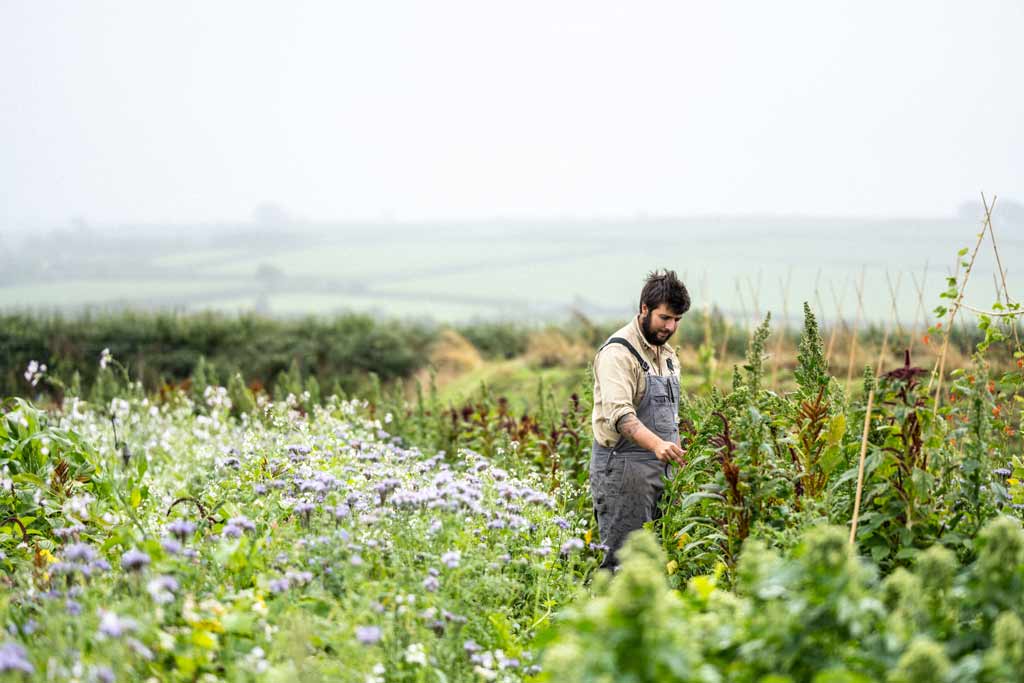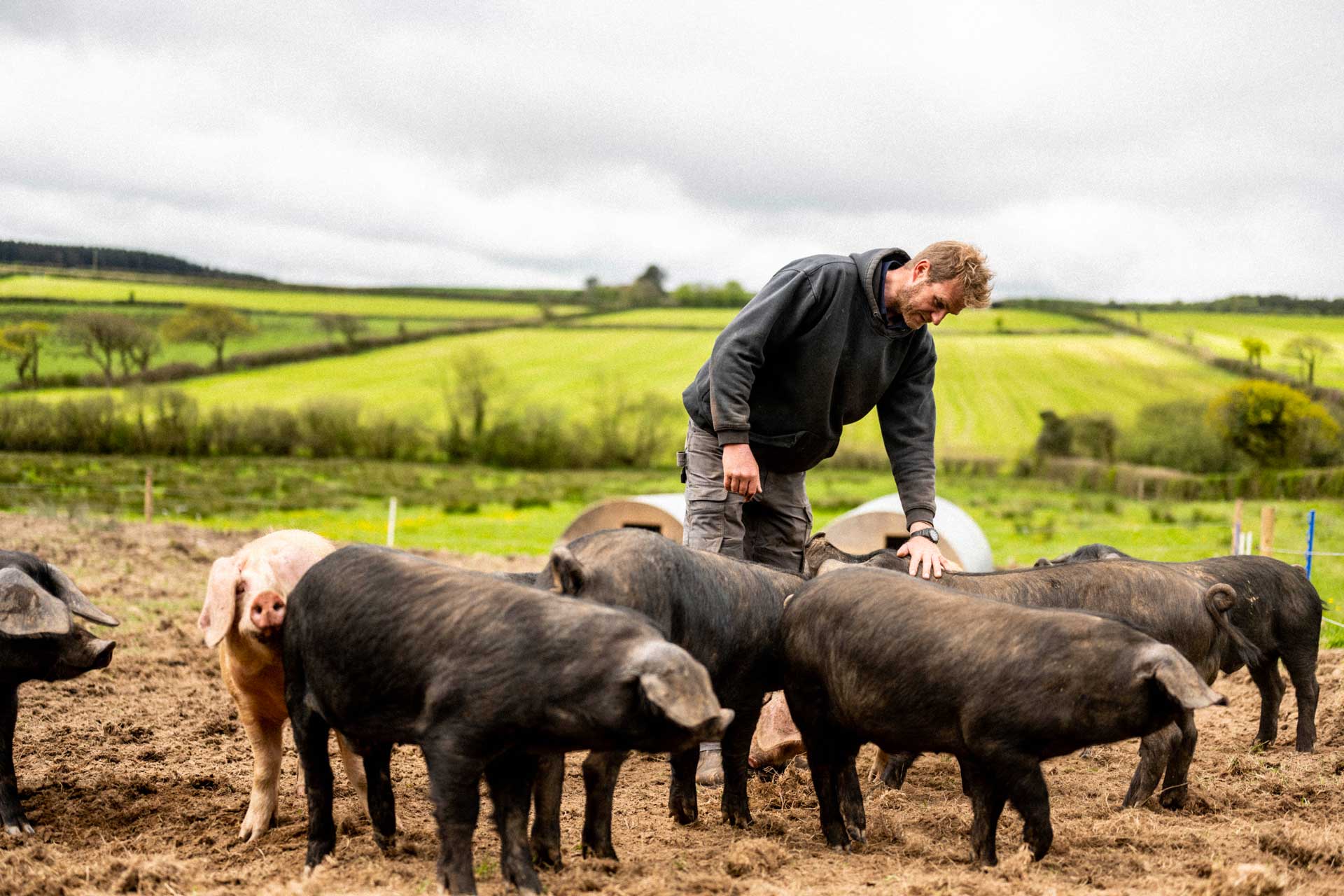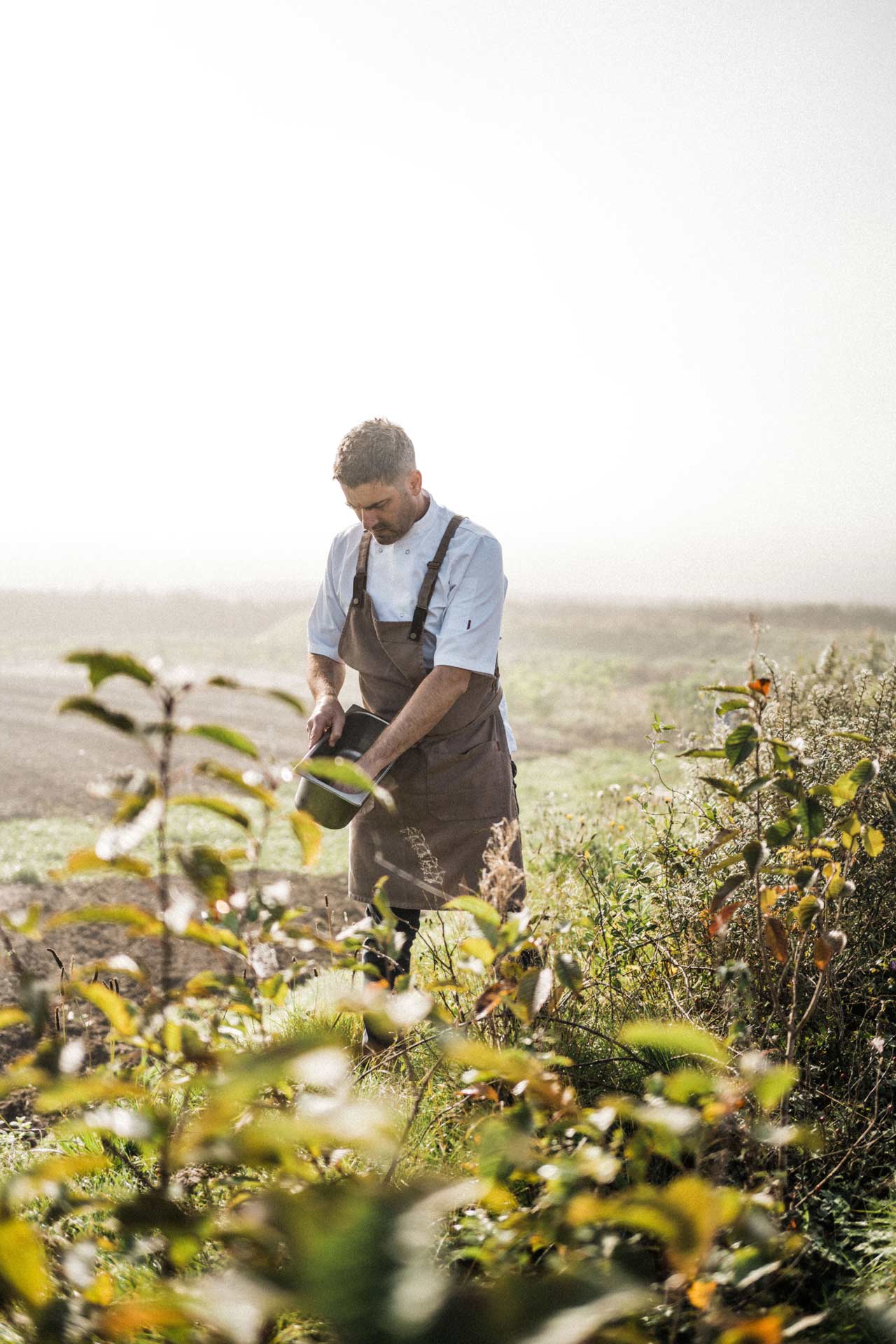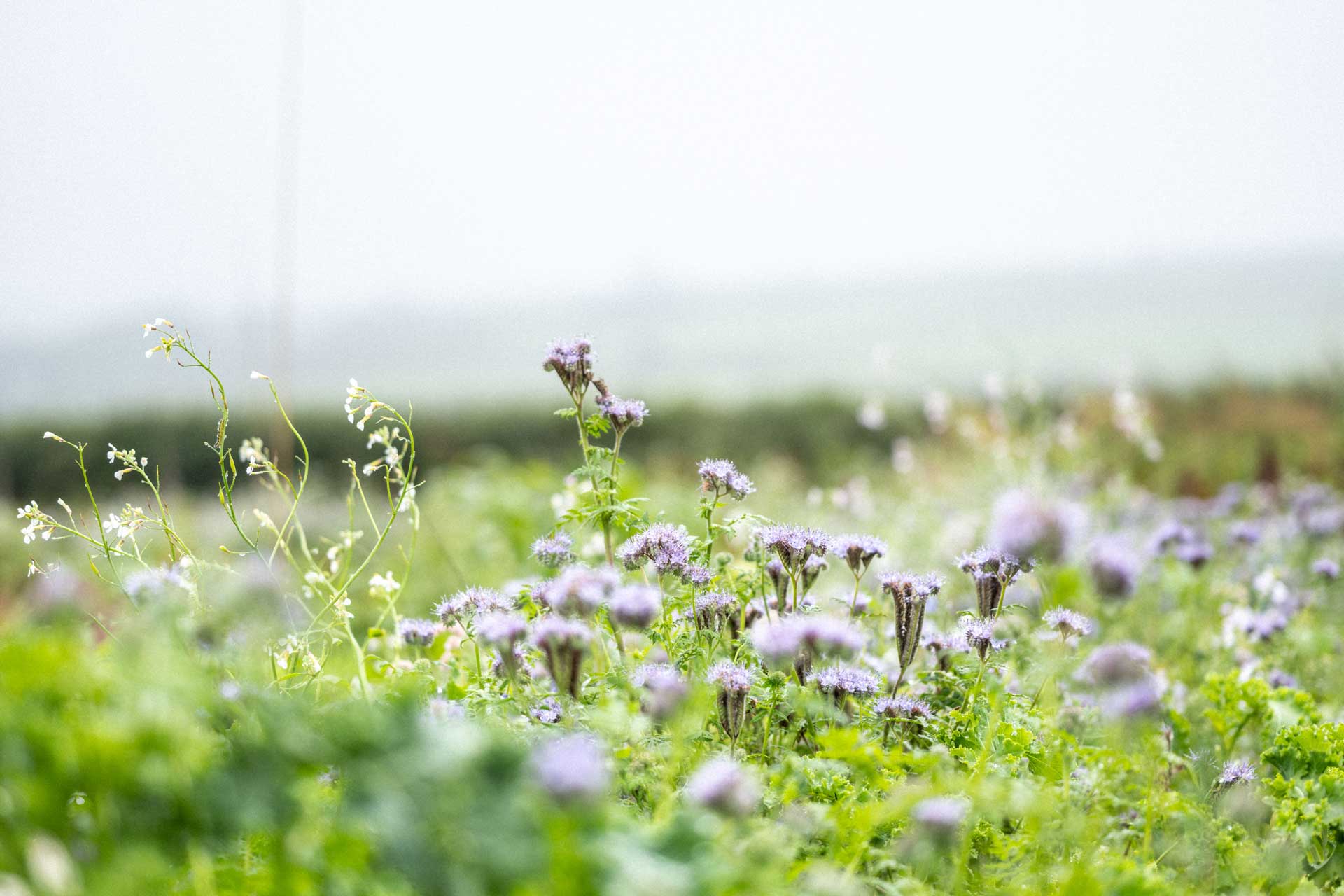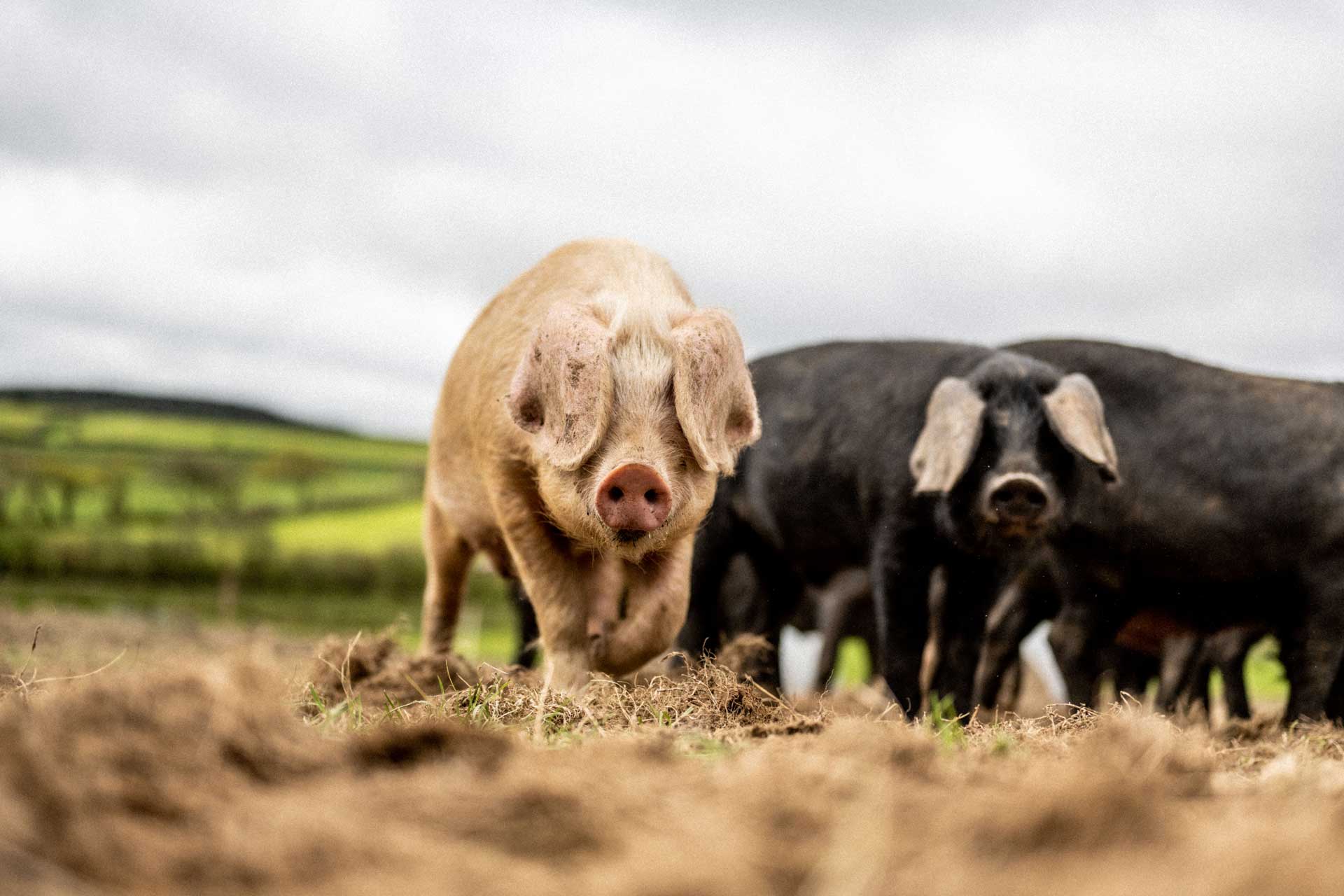An evolution in natural farming
Ancient and modern
The way in which we farm this land is more akin to how it would have been done a century ago.
The use of rewilding, along with natural techniques for soil health and low-density rearing of animals make Birch Farm highly unusual.
In our Animal Farm, you’ll find a range of rare-heritage breeds being reared to provide meat for The Farmers Arms and other projects in The Collective at Woolsery. By being allowed to grow at their natural rate to maturity and by living with space to roam the Devon landscape, they deliver a superior eating experience. In time, they are butchered on-site and crafted into cuts of meat, sausages and air-dried charcuterie.
The Garden Farm is seeing the reinstallation of traditional hedgerows to divide the land into smaller fields for different uses. This simultaneously creates a rich habitat and wildlife corridors for bees, other insects and small mammals.
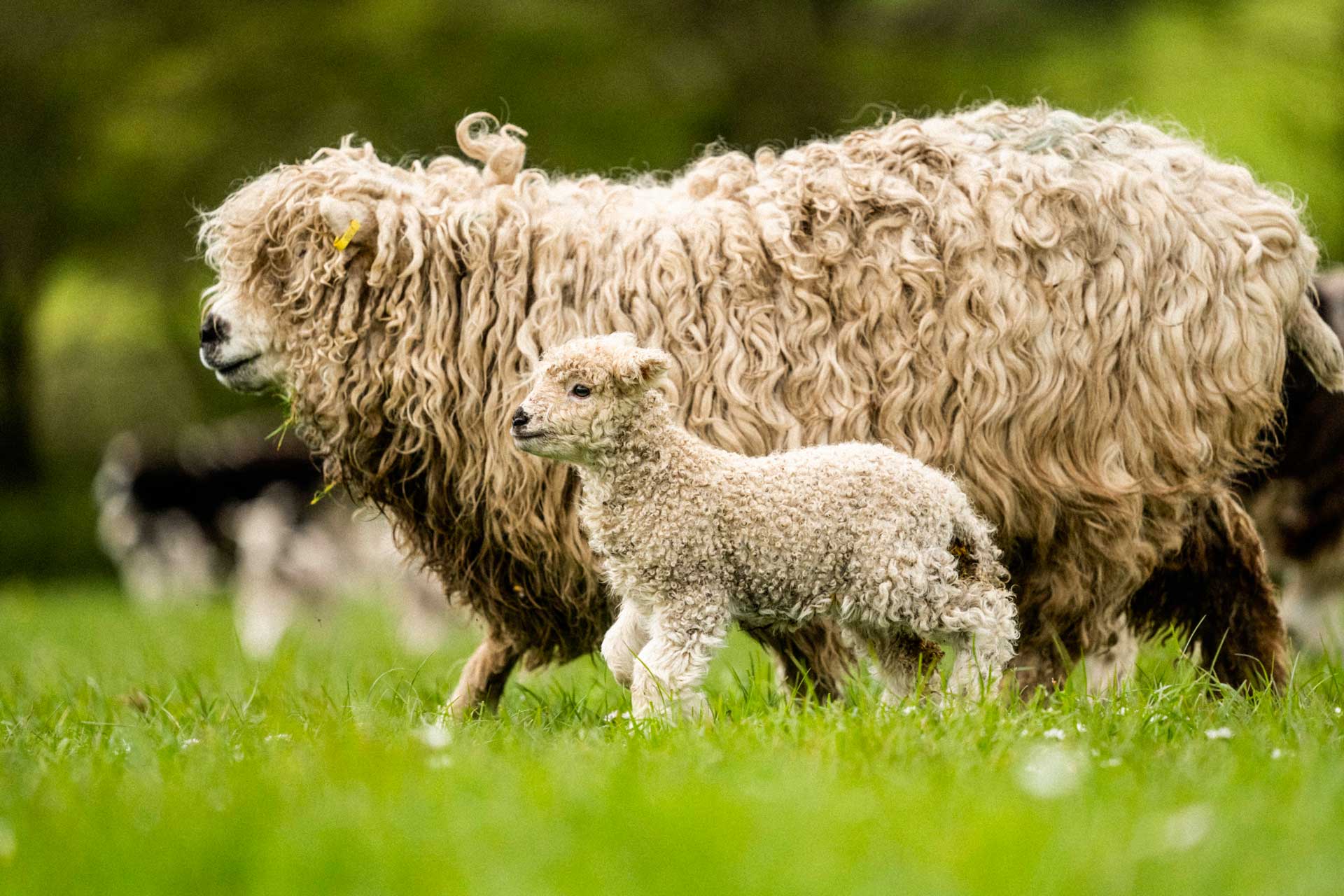
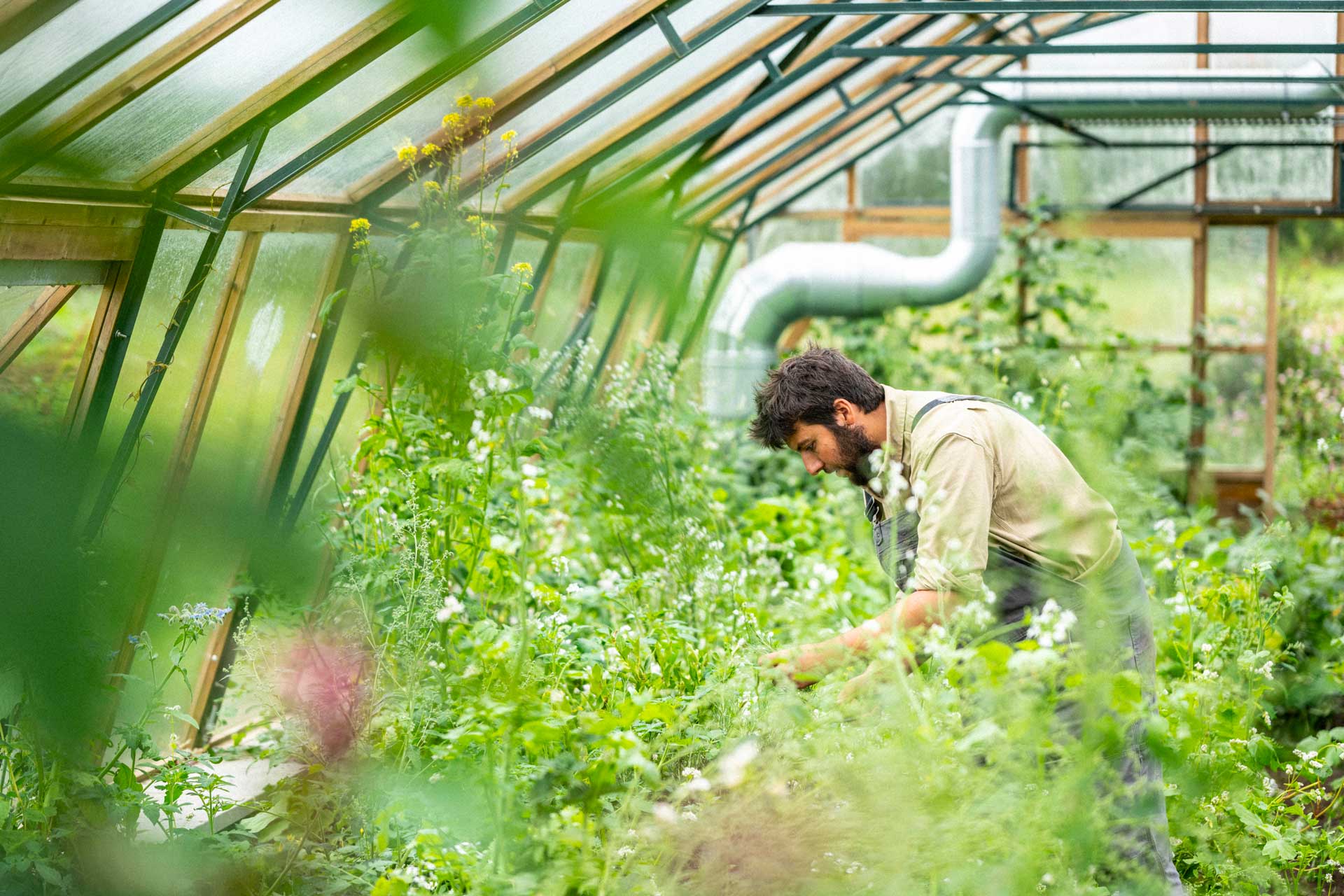
Edible aesthetics
We’re also growing an edible forest of over 300 plants – many of them rare species – from which fruit, nuts and herbs will be foraged (and sap tapped) for the kitchens. In the orchard, a collection of hardwood, nut and softwood trees have been planted to enable them to support each other in a mutually beneficial way.
Traditional glasshouses have been built in which Head Gardener Josh Sparkes raises tender plants and unusual herbs. He’s also using a Japanese composting system called bokashi, with the aim of creating a 360-degree food system.
